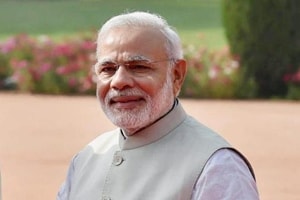Assessing the performance of PM Narendra Modi-led NDA government in two years, Neelkanth Mishra, India Equity Strategist for Credit Suisse highlights the key achievements, shortcomings and upcoming challenges. In a column in the Indian Express, Neelkanth Mishra credits the government for its steps in the power sector, while flagging agriculture as an area of concern. We take a look at four challenges and achievements, as highlighted by Mishra in his column:
Challenges:
1) Agriculture: Our research shows that with our per capita calorie consumption falling steadily, and agricultural productivity improving as the farmer gets more information and better infrastructure, we now have too many people producing too much food.
Worse, without agro-processing and cost competitiveness, these surpluses cannot be exported.
2) Housing: The government seems fully aware of its potential. Quality and affordable housing improves productivity of its residents, and its development creates millions of jobs. The trouble is in drafting the right policy. Like agriculture, this is a state subject, complicating the problem, but as we see in power distribution (UDAY scheme highlighted below), that need not be a constraint.
3) Macroeconomic statistics: There are also areas where one wishes more had happened. One is statistics. Management is impossible without measurement, and one wonders how policymakers in the government and the RBI work with macroeconomic statistics that are questioned by one and all; where there are persistent and glaring inconsistencies in the same data coming from different government sources. (Just to avoid confusion: Our view is that the new GDP series has flaws, but it’s an improvement over the previous one, and gets the ballpark of GDP growth right).
It’s not about analysts wasting time debating what should be certainties: Building trust in economy-wide data is critical for business to get confidence and start investing.
4) Upcoming challenges: The coming years will likely throw newer and tougher challenges too. For example, once the GST bill passes, its implementation will require much effort; or structural problems at the public sector banks, well beyond the current bad loans and recapitalisation needs. Pragmatism and tight execution will be much needed.
Achievements:
1) Execution: The most observable change in government functioning – Execution of plans has improved. The delays that analysts like me assumed in every government step, and the cynicism with which one projected its success, are now being re-assessed.
2) FDI: The seemingly simple procedural change of the Centre letting and helping states solicit FDI instead of doing so itself – this is not a headline grabbing “reform”, but seems to have unlocked major bottlenecks, and in our view has contributed meaningfully to record high FDI seen last year.
3) UDAY scheme: UDAY deals with one of the biggest challenges in India’s energy security. There is need for efficient power distribution. It is also a state subject, complicating matters. For purists who desire privatisation of state electricity boards, UDAY is little more than a debt recast.
In our view, it is a pragmatic mix of carrot and stick, and it seems to be working, which is what matters. One can think of many such developments across departments. In some, like in banking, the moves could have been more decisive and faster, but the pattern is the same. Eschew ideological purity, and focus on what can be done.
4) Jobs: There is also a refreshing acknowledgment within the government, and something of a departure from conventional thinking, that the 10-12 million jobs that need to be created every year cannot be done by the formal sector. With 90 per cent of India’s workforce working in the informal sector, and most of them in micro-enterprises, enabling basic infrastructure like electricity, roads and credit is much more important to help them grow and create jobs.
Schemes like MUDRA, in which of the Rs 1.2 trillion of loans disbursed last year, nearly half went to 3 crore borrowers with an average ticket size of Rs 19,000, are an important first step.


